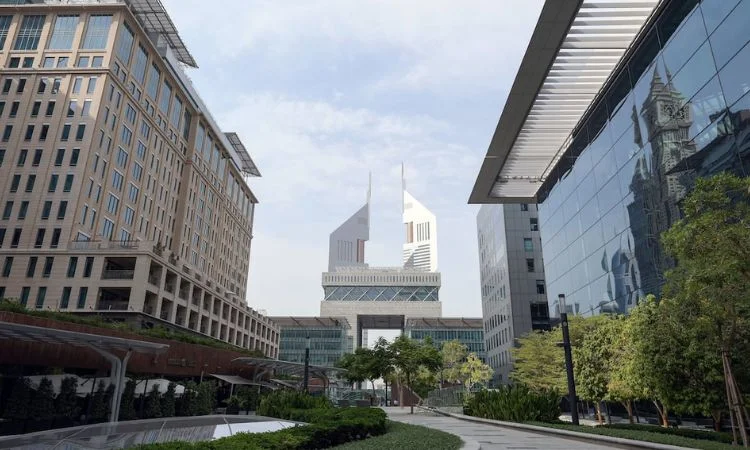The commercial real estate sector in the UAE is experiencing a massive revolution as international business interests into the country increase. In the first half of 2024, Dubai registered 34,075 newly incorporated companies on its books for a 5% annual growth rate, while global firms continue to make a mass migration into the state’s business-friendly climate.

PC: The National
Economic Growth Increases Investment
Non-oil GDP, one of the important support pillars of the economy in the UAE, will likely grow at 4% in 2024, according to projections by the Central Bank. Robust growth in non-oil GDP further endorses the status of the UAE as a very attractive foreign investment destination, and the charge leader is Dubai.
Hybrid Work: Lasting Shift or Temporary Trend?
The Covid-19 pandemic has brought about a permanent change to the dynamics of the workplaces, and businesses have had to change the operational models. Hybrid working has been a concern for companies as it is a combination of remote and in-office setups. Therefore, it has increased the demand for flexible workspaces, with the providers being The Executive Centre, Cloud Spaces, Servcorp, IWG, and WeWork.
These co-working spaces are designed for new market entrants and start-ups that might have different needs such as scalability and adaptability. The departure from the old-fashioned offices indicates a high level of demand for dynamic workplaces and environments.
Prime Districts Boom as Demand Rises
Prime areas like DIFC, Downtown Dubai, and Business Bay have recovered well. The Grade A occupancy rate has almost touched 97%.
Grade A offices saw rental values climb 25% year-on-year during the third quarter of 2024. Business Bay and Downtown Dubai recorded even higher jumps at 44% and 36%, respectively, as office workers began returning to in-office work again. Business flexibility in lease terms and office layouts is prompting companies to opt for high-quality office spaces once more. Sustainability becomes the talk of town
Many organizations are now looking to focus on sustainability. Besides these factors, demand is increasingly being felt for office spaces with green certifications, energy-efficient systems, and wellness amenities. Such environmental consciousness choices are in sync with the regulatory needs and with the more ecologically conscious workforce.
Secondary Markets See Growth
The post-Covid renaissance in Dubai Science Park and Dubai Investments Park secondary markets has been the result of a 37% rental growth as companies have been looking for cost-effective options without compromising on the quality. This trend seems to depict the balance being made by businesses between affordability and employee satisfaction.
Challenges and the Way Forward
Despite the positive momentum, challenges persist. The supply constraints in prime districts are pushing up rents and may compromise lease terms and tenant retention. Hybrid work models have seen some businesses shrink or even reconfigure office space requirements, and thus landlords need to be more flexible on terms and spaces. Developers, therefore, need to provide spaces that transition from collaboration areas to private offices so as to overcome these challenges. Since the growth of rentals in central districts is ongoing, the secondary markets are expected to stabilize and offer budget-friendly alternatives to firms.
The Big Picture
Demographics across these criteria make demands and keep an upside profile strong with the emphasis on infrastructure innovation and open business environment inside the UAE. Beyond justifying the hybrid vs office-based debate, designing spaces that add to higher productivity, have environmental standards, and match workforce priorities define them going into the future.
This heralds a new generation in the commercial real estate market of the UAE. This transformation balances flexibility, sustainability, and innovation as keys to responding to modern demands for business landscape change.














